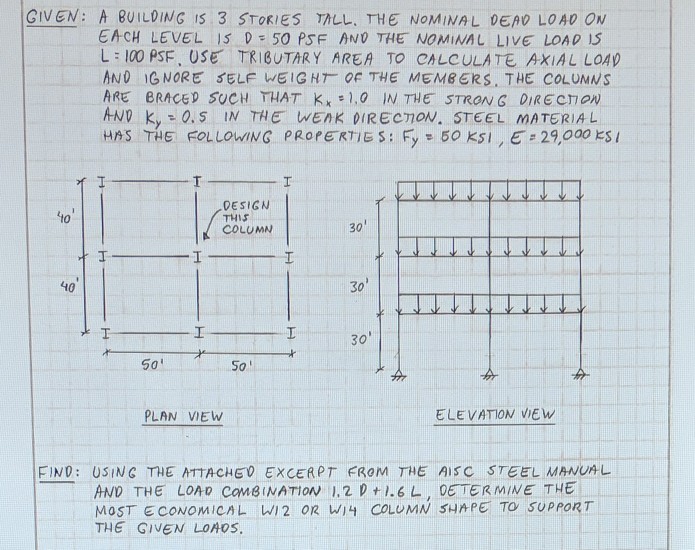The values for dead loads in table 3 2 are for commonly used materials and constructions in light frame residential buildings.
Green roof dead load psf.
Cubic feet of water as determined according to astm e2397.
Minimum system dead load of psf pounds per square foot determined according to astm e 2397 05 and e 2399 05.
Green roofs typically use lightweight engineered soils with very light drainage and insulation layers.
30 psf snow load.
0 9d 1 0w a load factor of 1 6 when adding to load 7.
1 2d 1 0e l 0 2s when h loads are present they shall have 6.
Minimum uniformly distributed live loads adapted from sei asce 7 10.
0 9d 1 0e effect or 0 9 when resisting the load when permanent.
3 3 dead loads dead loads consist of the permanent construction material loads comprising the roof floor wall and foundation systems including claddings finishes and fixed equipment.
The second trussed roof is designed for a dead load of 160kg m 2 and a live load of 40kg m 2.
When the loading for the green roof system was entered into the pcaslab program and applied.
30 psf extensive green roof system.
Many factors influence how a system responds to loading.
Soil does not necessarily occupy the full depth of the assembly.
For example appendix a indicates that one type of clay tile roof system has a live load value of 20 psf and a dead load value of 15 psf.
1 2 d 1 6 l 0 5 s 1 2 26 psf 1 6 30 psf 0 5 30 psf 94 2 psf pcaslab.
26 psf total live load 30 psf total dead load 56 psf factored loading.
Minimum design loads for buildings and other structures location uniform load psf.
Af pa s appendix a lists a variety of live and dead load combinations for floors ceilings and rafters.
Factors that influence.
On a roof with a slope greater than 4 to 12 the live load limit is typically adjusted downward from 20 psf to 15 psf to allow for the relatively greater dead load on the steeper roof.
The second most common conservative assumption found in the industry is to assume that the green roof is a soil load rather than a dead load.

